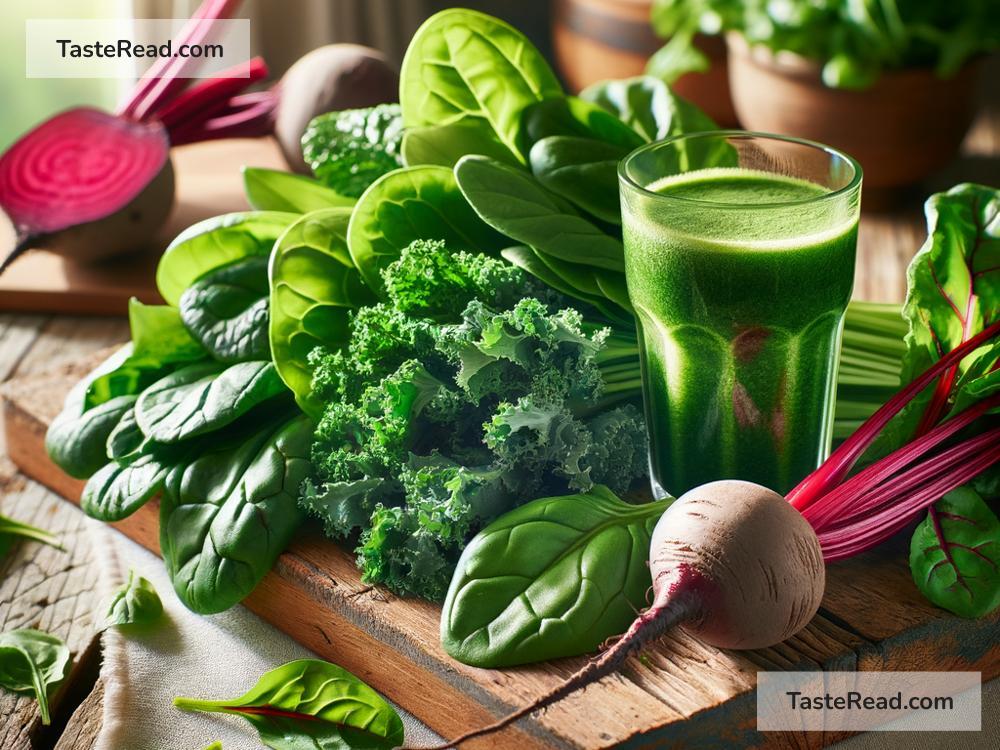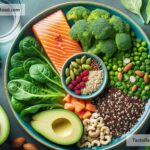Understanding the Role of Dietary Nitrates in Health
In recent years, dietary nitrates have gained attention for their potential benefits to health — particularly heart health and physical performance. But what are dietary nitrates, where can we find them, and what do they do? Let’s dive in and explore this topic in simple terms so everyone can understand.
What Are Dietary Nitrates?
Dietary nitrates are natural compounds found in certain foods, especially vegetables. These compounds are converted into nitric oxide in the body, a molecule that plays a major role in many important processes. Nitric oxide helps relax and widen blood vessels, improves blood flow, and supports healthy heart function.
You may have heard of “nitrates” in processed meats like bacon and sausages, but dietary nitrates from vegetables are different. Processed meat nitrates are often paired with preservatives and additives, which can affect health negatively when eaten in excess. The nitrates in vegetables, on the other hand, occur naturally and are linked to positive effects on the body.
Where Do Dietary Nitrates Come From?
Dietary nitrates are found in plant-based foods, especially in vegetables like:
- Leafy greens: Spinach, arugula, kale, and lettuce are excellent sources of nitrates.
- Root vegetables: Beets, radishes, and carrots contain high levels of nitrates.
- Other vegetables: Celery, cabbage, and fennel are also nitrate-rich.
Beets and beet juice are among the most famous sources of dietary nitrates. In fact, many athletes consume beet juice for its performance-boosting effects, which are linked to its ability to improve oxygen use during exercise.
How Do Dietary Nitrates Work in the Body?
Now let’s talk about what happens once you eat nitrate-rich foods. After consumption, dietary nitrates are converted into nitrites by bacteria in your mouth. These nitrites travel through the bloodstream and are further transformed into nitric oxide. Nitric oxide is the powerful molecule that makes all the healthy magic happen.
Nitric oxide helps to relax and expand blood vessels, a process called vasodilation. Wider blood vessels mean better blood flow, which can lower blood pressure and make it easier for the heart to pump blood. Good blood flow also means that oxygen and nutrients get to where they’re needed in the body more efficiently.
What Are the Health Benefits of Dietary Nitrates?
Eating vegetables rich in nitrates may help your body in multiple ways. Below are some of the most studied health benefits:
1. Improved Heart Health
Better blood flow from nitric oxide can lead to lower blood pressure levels — one of the major risk factors for heart disease. Research shows that consuming nitrate-rich vegetables can help reduce blood pressure naturally. This is great news for anyone looking to support a healthy heart.
2. Enhanced Athletic Performance
Athletes and fitness enthusiasts love nitrate-rich foods like beetroot because they help their bodies work more efficiently during exercise. Nitric oxide helps muscles use oxygen more effectively, which can lead to improved endurance and strength. Whether you’re running a marathon or just hitting the gym, dietary nitrates can provide a performance boost.
3. Brain Health
Nitric oxide doesn’t just help blood flow to the muscles — it also improves circulation to the brain. Good blood flow to the brain may boost cognitive function and protect against age-related decline in memory and thinking skills. Some studies even suggest that nitrates could play a role in reducing the risk of dementia.
4. Better Circulation
Poor circulation can lead to cold hands and feet, muscle cramps, and fatigue. Nitrates help improve circulation, soothing these issues and keeping your body running smoothly.
Are There Any Risks?
For most people, eating nitrate-rich vegetables is safe and healthy. However, there are a few things to consider:
-
Don’t Rely Solely on Supplements: While nitrate supplements like beetroot extract are available, whole vegetables provide extra nutrients like fiber, vitamins, and antioxidants that are essential for health. Eating the real food is better than relying on pills or powders.
-
High-Temperature Cooking: Cooking nitrate-rich vegetables at high temperatures can reduce their nitrate content. To get the most benefit, try steaming, roasting, or eating vegetables raw.
-
Your Oral Health: When bacteria in your mouth convert nitrates into nitrites, those nitrites contribute to the creation of nitric oxide. Using antibacterial mouthwash excessively may destroy these helpful bacteria. So, balance your oral care routine, and be mindful of the impact on nitrate conversion.
How Can You Add More Dietary Nitrates to Your Diet?
Getting more dietary nitrates is easier than you think! Here are a few tips:
- Make leafy greens like spinach or arugula a daily part of your meals. Add them to salads, smoothies, or sandwiches.
- Snack on nitrate-rich veggies like celery and carrots or dip them in hummus for some extra flavor.
- Drink beetroot juice or blend beets into a smoothie for a refreshing, nutrient-packed drink.
- Add roasted vegetables like sweet potatoes and radishes to your dinner plate.
Final Thoughts
Dietary nitrates are an easy and natural way to improve heart health, enhance physical performance, and more. By eating plenty of nitrate-rich vegetables like spinach, lettuce, and beets, you’re giving your body the tools it needs to thrive. Best of all, these foods aren’t just good for you — they’re delicious too!
So next time you’re planning a meal, load up on leafy greens and colorful veggies. Your heart, brain, and muscles will thank you!


